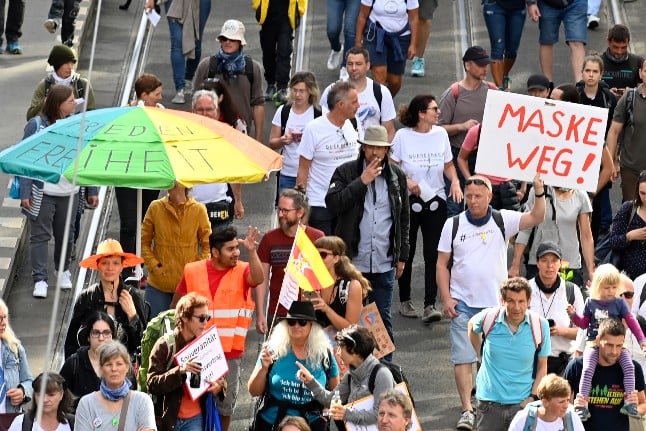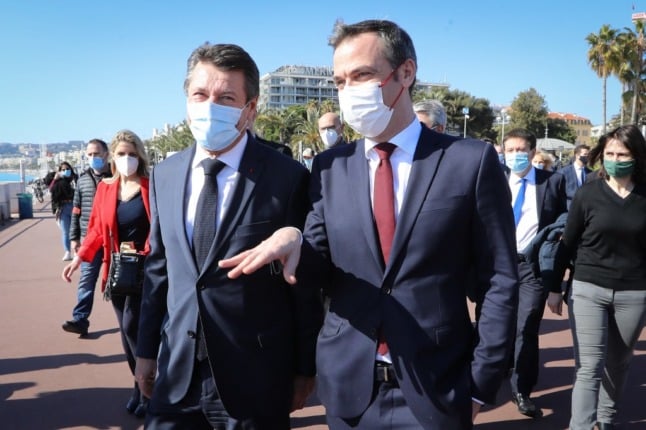“Unfortunately, we have no other option,” Berlin police wrote on Twitter. “We've approached the leader of the demonstration and informed him that his assembly will be dissolved by the police. All the measures taken so far have not led to compliance with the conditions.”
Es bleibt uns leider keine andere Möglichkeit: Wir sind an den Versammlungsleiter der Demo herangetreten und haben ihm mitgeteilt, dass seine Versammlung polizeilich aufgelöst wird. Alle bisherigen Maßnahmen haben nicht zu einem Einhalten der Auflagen geführt. #b2908
— Polizei Berlin Einsatz (@PolizeiBerlin_E) August 29, 2020
#VIDEO Berlin police said they will turn out in force and strictly monitor compliance with mask-wearing and social distancing, with police warning that if the demonstrators do not adhere to virus safety rules, officers will clear the area “very quickly”https://t.co/qf6h7GOoE6 pic.twitter.com/4DWH9D59fL
— AFP news agency (@AFP) August 29, 2020




The demonstration brought together a disparate mix of the far-right, the far-left, opponents of vaccination, and in many areas had a celebratory party atmosphere, with drums, chanting and cheering.
Mainstream media, what is happening in #Berlin (Germany)?#Berlin2908pic.twitter.com/ewc1glsTKK
— Oh boy what a shot (@ohboywhatashot) August 29, 2020
One of several counter demos against the coronavirus skeptic protest in Berlin. #B2908
“You’re marching alongside Nazis,” counter protesters chant. The motto is #AbstandhaltengegenRechts (Keep distance from the far-right) pic.twitter.com/t09eNjYfqy
— Kate Brady (@kbrady90) August 29, 2020






 Please whitelist us to continue reading.
Please whitelist us to continue reading.